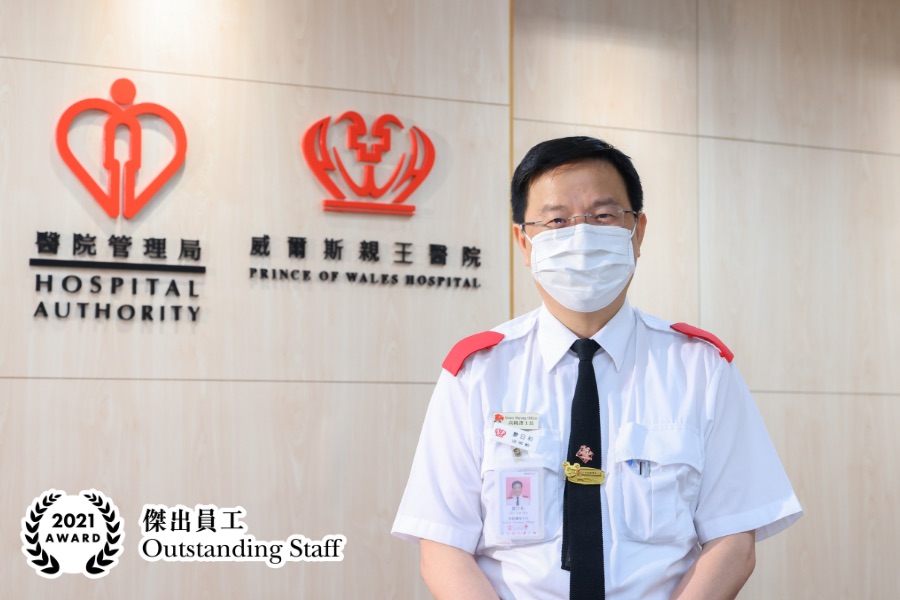The art of bed coordination
 Liu Yat-wo
Liu Yat-woSenior Nursing Officer (Central Nursing Division)
Prince of Wales Hospital
As one of the busiest hospitals in Hong Kong, many patients of Prince of Wales Hospital once had to wait for more than 24 hours before being transferred to wards for further treatment from the Accident and Emergency (A&E) Department. Faced with a shortage of medical beds, Mr Liu Yat-wo, the Senior Nursing Officer who has been transferred from Surgery Department to Central Nursing Division, took up the role of ‘central bed coordinator’ four years ago to lead his team to coordinate the utilisation of some 1,700 beds in the hospital.
Deploying hospital beds on a large scale is no easy task. Mr Liu says changing the mindset is essential, “It’s important to think from others’ perspective. We changed the mindset of our colleagues from taking care of a few dozen beds in their own ward to being willing to share the beds of the entire hospital with one another. We first appointed a nurse from each ward as the ‘bed coordinator’, who would go to the A&E at designated times to proactively pick up patients, monitor the actual number of vacant beds in their ward and make timely arrangements accordingly. This has greatly shortened the time for transferring patients. Last year, we were able to transfer over 90% of A&E patients to wards within four hours.”
In addition to the hospital management’s unwavering support, promoting and building team spirit is also one of the keys to success. “We have launched an exchange programme to arrange ward staff to work at A&E for some time so that they can better understand patients’ situation. As a result, communication between various departments have been improved and colleagues are more willing to offer help when the need for inter-departmental deployment of beds arises,” Mr Liu says he enjoyed working in the ward to take care of patients previously as it brought immediate job satisfaction. Now that he is involved in planning and coordinating work, which sometimes does not yield immediate results. Yet, he realises that as long as the relevant systems and mechanisms are developed and implemented according to patient needs, supplemented with good communication and coordination between departments, more patients will surely benefit in the end. Mr Liu believes that no matter where we work, the ultimate goal is to promote the well-being of patients.